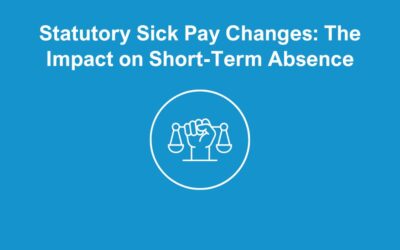In today’s dynamic business world, companies need to be agile and innovative to stay competitive. One of the most effective ways to achieve this is by broadening employees’ skills and experience. Secondments are an increasingly popular approach to achieving this. This guide will help you understand what a secondment is, its benefits, and how to set one up effectively in the UK.
What Is a Secondment?
This is a temporary transfer of an employee to another role or organisation for a set period, usually with a specific purpose or project in mind. It can occur within the same organisation, across departments, or between separate organisations. Typically, they last anywhere from a few months to a couple of years, with the employee returning to their original role (or an equivalent) at the end.
Secondments are especially common in sectors like government, healthcare, and professional services. However, they can be a beneficial tool in any industry. They offer a unique opportunity for employees to develop new skills, broaden their experience, and expand their professional networks.
Types of Secondments
- Internal Secondment: The employee is temporarily transferred within the same organisation, typically to a different department or branch. For instance, an HR professional might join the finance department on secondment to develop cross-functional expertise.
- External Secondment: The employee is temporarily transferred to another organisation, which could be a partner, client, or even a charity. This might be for project collaboration, skill development, or CSR (corporate social responsibility) purposes.
Why Consider Secondments?
This can be a win-win situation for both the employee and the employer. Here are some of the key benefits:
- Skill Development: Employees can gain valuable experience and develop new skills. This helps them grow professionally and enhances their ability to contribute to their role when they return.
- Retention and Engagement: This type of transfer can increase employee engagement and satisfaction by providing new challenges and growth opportunities, which, in turn, can improve retention rates.
- Networking: By working in different environments, employees expand their professional network, which can be advantageous for both their personal growth and the organisation’s future collaborations.
- Knowledge Sharing: Seconded employees often bring back insights and best practices from other departments or organisations, enriching the workplace with fresh perspectives and knowledge.
- Cost-Effective: In some cases, this is more affordable than recruiting externally, as there’s no need for extensive onboarding.
Key Considerations for Setting Up a Secondment
- Identify the Purpose: Before starting, both the employer and the employee should be clear about the objectives. Whether it’s to address a skills gap, lead a project, or aid in career development, clarity is crucial.
- Set Clear Terms and Conditions: A secondment agreement is essential and should outline the duration, roles, responsibilities, and any changes to the employee’s pay and benefits during the transfer. It’s also important to clarify who will manage the employee during the period and how performance will be reviewed.
- Determine Financial Arrangements: In the case of an external secondment, it’s essential to clarify who will be responsible for the employee’s salary, expenses, and other costs. Sometimes, the host organisation may cover part or all of the costs, or the arrangement may be cost-neutral to both parties.
- Plan for Reintegration: To ensure a smooth transition back to their original role, employers should have a plan for reintegrating the employee once the temporary role has ended. This may involve debriefing sessions, updating them on any changes that occurred during their absence, or even offering an adjusted role if they’ve acquired new skills.
- Monitor Progress: Regular check-ins during the secondment can help both the employee and employer assess progress and address any issues. These touchpoints can ensure that both parties are achieving their goals and that any challenges are swiftly managed.
How to Manage a Secondment Effectively
Managing a secondment effectively requires collaboration, planning, and flexibility from both the original employer and the host organisation. Here are some practical steps:
- Select the Right Candidate: Identify employees who are open to learning and willing to embrace the challenges of a new environment. Ideally, they should be motivated and possess a skill set aligned with the role’s objectives.
- Create a Structured Plan: Outline the expected goals, timeline, and performance indicators. Ensure both the employee and the host organisation agree on this structure to prevent misunderstandings.
- Maintain Communication: Regular communication between the employee, host, and original employer is key to tracking progress, addressing concerns, and ensuring that the secondment remains aligned with business objectives.
- Conduct a Post-Secondment Review: Once the role concludes, it’s helpful to hold a review session. This provides the employee with feedback on their experience and performance, and gives the employer insights into how the skills and knowledge gained can be integrated back into the team.
Our recruitment experts and HR Consultants can help you with this.
Legal and HR Implications
It’s essential to have a clear agreement in place covering aspects such as employment status, confidentiality, and data protection. Seconded employees typically retain their employment contract with the original employer, even if they’re temporarily working for another organisation. However, if any employment status changes are expected during the secondment, it’s advisable to consult legal or HR professionals.
Consider these aspects when drafting an agreement:
- Employment Rights: Make it clear that the employee retains their rights under the original employment contract, such as holiday entitlements and statutory sick pay.
- Data Protection: Ensure any data protection obligations are clear, particularly if it is with an external organisation.
- Confidentiality and Non-Disclosure: For external secondments, confidentiality is crucial, especially if the employee will be exposed to sensitive or proprietary information.
Final Thoughts
Secondments can be a valuable tool for developing employees, fostering collaboration, and enhancing skills within an organisation. By setting clear objectives, establishing formal agreements, and maintaining open communication, businesses can ensure that this is a positive experience for everyone involved.
Whether you’re considering implementing a secondment programme or exploring one as part of your own career development, understanding the process and benefits can help you make the most of this opportunity. This opportunity might be temporary, but the positive impact on skills, experience, and engagement can be long-lasting.







